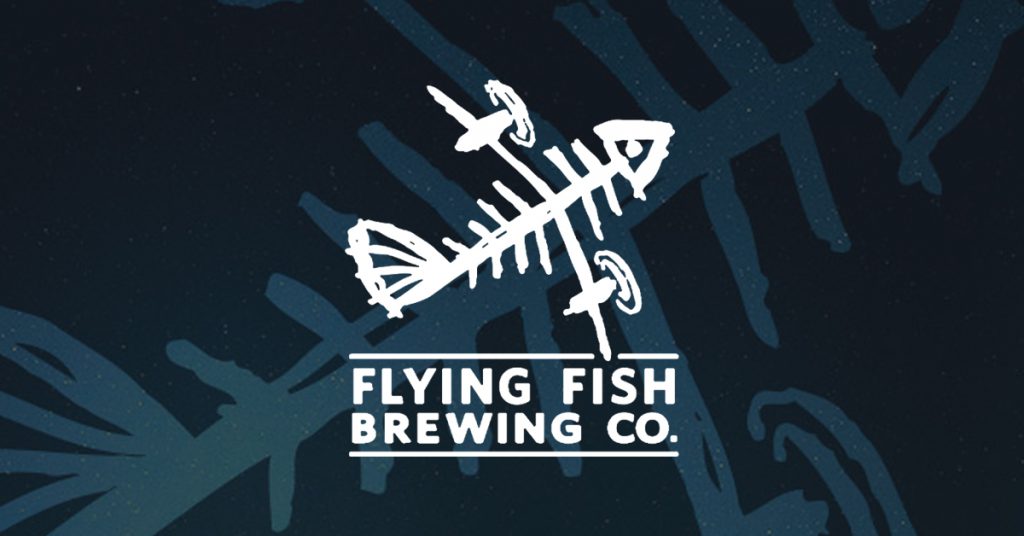
Nearly seven months after the dissolution of its proposed merger with Cape May Brewing, Flying Fish Brewing filed for Chapter 11 bankruptcy late last month.
The brewery listed nearly $9.3 million owed to secured and unsecured creditors and nearly $1.3 million in assets, according to documents filed in the U.S. Bankruptcy Court for the district of New Jersey.
Somerdale, New Jersey-headquartered Flying Fish is one of the Garden State’s oldest craft breweries, founded in 1995 by Gene Muller.
Pennsylvania-based Elk Lake Capital acquired the brewery in 2016, two years before Muller sold his last remaining shares and exited the business. Elk Lake is a family-owned private equity firm helmed by James Lewandowski, who also serves as Flying Fish’s CEO.
Elk Lake Capital and Calabasas, California-based Celtic Capital Corporation are Flying Fish’s largest creditors, with each owed a little more than $4 million in secured and unsecured claims.
Documents reveal that Celtic has eight claims each valued at $508,627 for various business needs, while Elk Lake has 10 claims valued at $150,000, plus a $2.55 million loan. Elk Lake’s claim is subordinated to Celtic, according to court filings.
Other unsecured creditors include Boortmalt USA Limited, Canada Malting Company, Country Malt, Gamer Packaging and Yakima Chief-Hopunion LLC.
After filing its initial petition on December 28, Flying Fish filed a motion to use cash collateral to fund January 2024 operations and pay prepetition wages for the final pay period of December 2023.
“The debtor-in-possession receives substantial income from selling its microbrews, hosting events at its tap room and collecting its accounts receivable,” Lewandowski wrote in the motion. “To remain in business and avoid irreparable harm to the estate, the debtor-in-possession must be permitted to use the proceeds from said activities.”
“If the debtor-in-possession is not permitted to use such proceeds, it will have to close down its operations forthwith without paying its employees and without continuing its operations,” he continued.
Flying Fish needs $32,000 to cover total payroll costs, which includes taxes and worker’s compensation insurance, according to the filing.
The brewery’s estimated budget to fund operations from January 7-31 is $105,000, which includes payroll, rent, excise taxes, insurance, utilities, supplies and freight. Flying Fish projects $115,000 in revenue for that period, leaving a net of $10,000.
Celtic filed a motion Tuesday opposing Flying Fish’s request to use cash collateral and questioned the brewery’s viability, claiming Flying Fish has displayed an “inability to continue operations and utter failure to meet its evidentiary burden of proof.”
“Celtic is informed that the debtor has no ability to continue as a going concern and seeks to
wind down its affairs,” Celtic’s attorney J. Alexandra Rhim wrote. “Specifically, the debtor advised it will liquidate its assets of value and repay creditors, namely Celtic which is the senior secured party.”
Rhim asked why Flying Fish is working to reorganize under Chapter 11 bankruptcy, rather than filing to liquidate under Chapter 7 bankruptcy. She claimed the brewery has collected up to $70,000 that it diverted from Celtic and has “no business justification to permit use of cash collateral.”
“The debtor proposes to spend $105,000 in cash collateral to potentially realize $115,000 in receivables,” Rhim wrote. “This is a mere $10,000 net gain at best. Celtic believes that the debtor’s projection that it will actually realize 100% of the $115,000 in receivables i[s] speculative. Given this economic reality, there is no basis to permit the debtor to expend cash on hand to realize a mere $10,000.”
Flying Fish’s volume declined -4% in 2022, to 16,000 barrels, according to the Brewers Association’s (BA) in the May/June 2023 issue of the New Brewer magazine.. The brewery’s most recent peak was 23,920 barrels in 2016, according to the BA.
The announced merger with Cape May Brewing could have been a lifeline for the brewery, and given Cape May – the state’s largest craft brewery – access to Flying Fish’s 25,000-barrel capacity brewery. News of the deal’s demise surfaced about seven weeks after it was announced.
In mid-June, Cape May president Frank Stempin wrote: “After extensive analysis during the diligence phase, Cape May Brewing Company has determined it will not complete the planned acquisition of Flying Fish. As a result, all plans associated with the close have halted, and the acquisition will not proceed.”
A hearing to determine Flying Fish’s ability to use cash collateral was scheduled for January 3. A request to Flying Fish for comment was not returned as of publication time.
Look for future Brewbound coverage of this developing situation.
